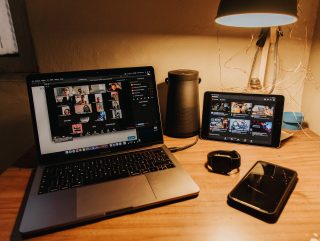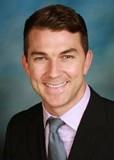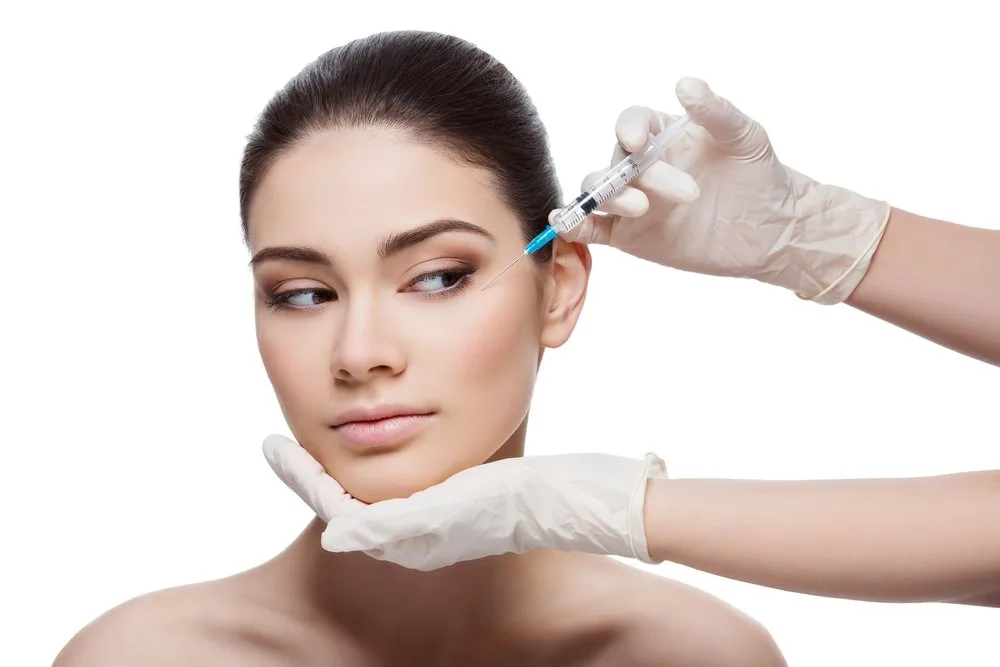They are calling it the “Zoom boom”. Dr. Michael J. Reilly, a practicing physician and Georgetown University professor of facial, plastic, and reconstructive surgery, explained the phenomenon to ABC News recently. “Botox is big right now,” he said, “as are facelifts, especially because people are spending so much time looking at themselves on camera.”
The boom in Botox is raising eyebrows
For many of us, Zoom, and apps like it, is a necessary frustration. We have to put up with technical glitches, the pixelated faces, the exhausting long meetings with colleagues. It’s the price we pay to prevent the spread of the pandemic. In addition, it appears to be fuelling feelings of discontent and emotional instability in a lot of users. So much so that people are increasingly turning to plastic surgery and other non-invasive methods for some form of aesthetic relief.
The psychological impact of Zoom
“It’s a strange driver for surgery right now. People are their own worst critics,” explained Dr. Reilly. He says the Zoom phenomenon is driving this boom. Most people end up staring at their own faces during video conferences, and sadly they don’t like what they are seeing.
A significant increase in cosmetic procedures
Reilly told ABC News, that he’s seen about a 30% increase in cosmetic procedures since the pandemic began, even as most people continue to avoid hospitals and doctors’ offices.
Once elective surgeries were put back on the board following the first months of the pandemic, the industry started booming and has gotten “significantly busier in the last nine months,”

Photo by Gabriel Benois on Unsplash
The pressure of being on Zoom camera all-day
“Botox is big right now, as are facelifts, especially because people are spending so much time looking at themselves on camera.”
The growth in the use of Botox and other treatments is obviously not new.
A growing industry before the pandemic
The use of aesthetic treatments and procedures is widespread from chemical peels to fillers, to botulinum toxin (Botox) procedures. It’s clear that anti-aging treatments are always the order of the day. In fact, in 2018 alone, around 15.8 million minimally invasive cosmetic procedures were performed in the United States. Out of these procedures, over 1.8 million were for botulinum toxin procedures. It’s clear that aesthetic procedures are a part of our everyday lives, at least they were. With the current state of affairs surrounding the coronavirus pandemic, our trips to the aesthetic clinic have been interrupted. This has then left those who routinely visit estheticians with one question – what do we do with our faces?
There is also the added bonus that if someone does choose to go under the knife right now, they can easily hide their bandages and scars under a mask, or by staying home, in quarantine.
Lots of emotional layers to the pandemic
“We’re calling it a ‘Zoom boom,'” Reilly said. “There are a lot of emotional layers to this pandemic relating to your appearance.”
Should there be an alarm at this trend? Many psychologists believe the motivation for self-improvement is one thing, but perpetual self-criticism causes its own kind of burnout.
There’s a lot of that going around during this time when we’re all stuck in our homes and staring at our Zoom boxes. Clearly, the Zoom boom trend will continue on its upward trajectory.
Watch the ABC Video here – Zoom Boom
Who is Michael J Reilly MD?
 Michael J. Reilly, MD, is truly fortunate to practice the art and science of otolaryngology, specializing in facial plastic and reconstructive surgery. He feels this is the ideal intersection of his interpersonal understanding, intellectual aptitude, surgical expertise, and aesthetic sensibility.
Michael J. Reilly, MD, is truly fortunate to practice the art and science of otolaryngology, specializing in facial plastic and reconstructive surgery. He feels this is the ideal intersection of his interpersonal understanding, intellectual aptitude, surgical expertise, and aesthetic sensibility.
Dr. Reilly is an Associate Professor of facial reconstructive surgery at MedStar Georgetown University Hospital. He is an expert in rhinoplasty, facial cosmetic surgery, and complex reconstruction of the head and neck following cancer surgery.
Dr. Reilly’s training began with undergraduate and medical school at the University of North Carolina at Chapel Hill. He then went on to complete his five-year residency in otolaryngology (head and neck surgery) at Georgetown University. Subsequently, Dr. Reilly completed a very prestigious fellowship in facial plastic and reconstructive surgery at the University of California Los Angeles Medical Center before returning home to Washington, D.C.
Dr. Reilly continues to take an active role in medical research and education. He has authored and contributed to numerous articles and book chapters. In 2011-2012, he completed the rigorous Medstar Teaching Scholars Program, where he received AAMC certification for Medical Education Research. Dr. Reilly enjoys his role in teaching graduate and post-graduate medical students at Georgetown and has authored and contributed numerous articles and book chapters. He was recently featured on the Today Show with Kathie Lee & Hoda, discussing his research about how cosmetic surgery can change the way patients’ personalities are perceived by others.
Botox during quarantine
You can read more about Botox during Quarantine here: Anti-Aging Hacks





![women [longevity live]](https://longevitylive.com/wp-content/uploads/2020/01/photo-of-women-walking-down-the-street-1116984-100x100.jpg)









